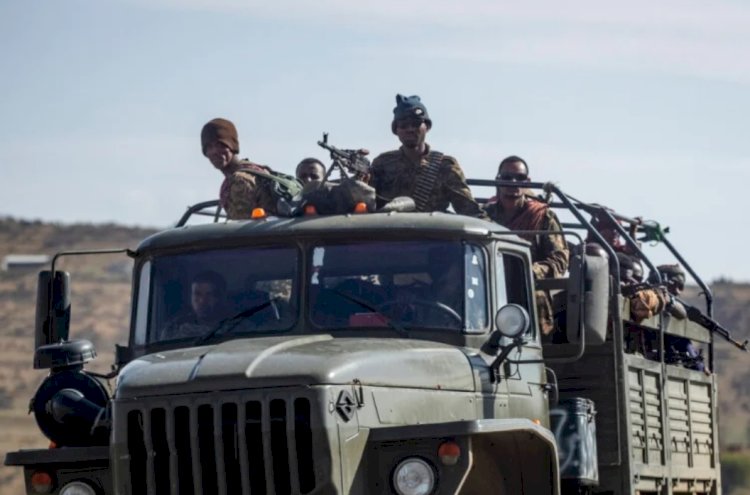UN Calls For Ceasefire Amid Renewed Fighting In Northern Ethiopia
UN Secretary-General Antonio Guterres calls for a ceasefire after renewed fighting erupted around the Tigray region.

The UN Secretary-General Antonio Guterres says he was shocked by renewed fighting around the northern region of Tigray in the Ethiopia and appealed for an immediate ceasefire. Fighting erupted on the Wednesday around the southern edge of Tigray, with both the government and the Tigray People’s Liberation Front rebels accusing each
other of resuming hostilities and torpedoing a five-month-old ceasefire. Reports of fresh offensives were followed by Ethiopia’s air force announcing it had downed a plane carrying weapons for the TPLF. The government of Prime Minister Abiy Ahmed and the rebels have accused each other of undermining efforts
to peacefully resolve the brutal 21-month war in Africa’s second-most populous nation, and traded blame over who was responsible for returning to combat. UN chief Antonio Guterres said he was deeply shocked” by the renewed fighting and appealed for an “immediate cessation of hostilities and for the resumption of peace
talks, full humanitarian access and the re-establishment of public services in Tigray. The head of the African Union Commission, Moussa Faki Mahamat, called for a de-escalation and the resumption of talks to seek a peaceful solution. The AU’s Horn of Africa envoy Olusegun Obasanjo has been leading the international
push to end the 21-month conflict in northern Ethiopia between Tigrayan rebels and government forces. Faki “reiterates the African Union’s continued commitment to work with the parties in support of a consensual political process in the interest of the country”, the AU said in a statement, calling for both sides to engage with
Obasanjo. The US Department of State called on the Ethiopian government and the TPLF to redouble efforts to advance talks for a durable ceasefire. Last week, the Ethiopian government called for a formal Tigray ceasefire agreement to be reached as soon as possible to enable the resumption of basic services to
the war-stricken northern region. The government wants the AU envoy to lead any peace talks but the TPLF has rejected Obasanjo’s mediation. Tigray authorities have criticised the continental body’s efforts and urgently sought the resumption of telephone, banking and other services that have been largely cut off since the war
began in November 2020. Thousands of people have been killed in the war in Africa’s second-most populous country. The conflict had calmed in recent months amid slow-moving mediation efforts. But last week, the spokeswoman for Prime Minister Abiy Ahmed asserted to journalists that Tigray authorities were “refusing to
accept peace talks. The Tigray military command’s statement Wednesday said Ethiopian forces, along with Amhara special forces and Amhara militias, “have started a large-scale attack around 5:00 a.m. [02:00 GMT] in the direction of Alamata, southern Tigray. Tigray forces spokesman Getachew Reda tweeted that the
offensive followed a week-long provocation by forces in the neighbouring Amhara region. The government’s communication service asserted in a statement that the Tigray forces launched attacks on Wednesday morning. It said if attacks continue, “the government will take measures to save the country … and also bring [Tigray
forces] to the negotiating table whether it likes it or not. Last week, Tigray forces warned of an impending offensive. In a Facebook post on Tuesday, Ethiopia’s army rejected allegations of a military buildup and claimed the Tigray forces were “engaged in pre-conflict noise. The post also warned against spreading secrets
of the army.” Earlier this month, World Health Organization director-general Tedros Adhanom Ghebreyesus, an ethnic Tigrayan, described the crisis in Tigray as “the worst disaster on Earth and wondered aloud if the reason global leaders have not responded was due to the colour of the skin of the people in Tigray.
Humanitarian aid began flowing to Tigray earlier this year, but a report by the World Food Programme last week said that with little fuel allowed into the region to deliver supplies, this is yet to translate into increased humanitarian assistance. The UN agency said rates of malnutrition have skyrocketed, with 29 percent of children malnourished and 2.4 million people severely food insecure.
